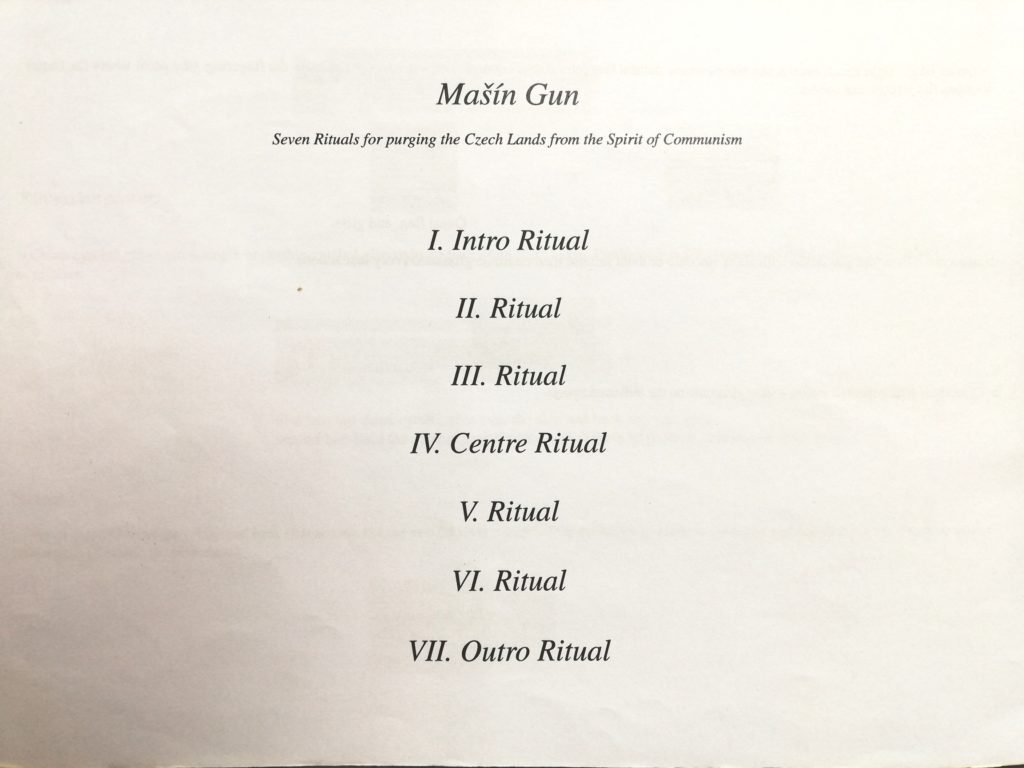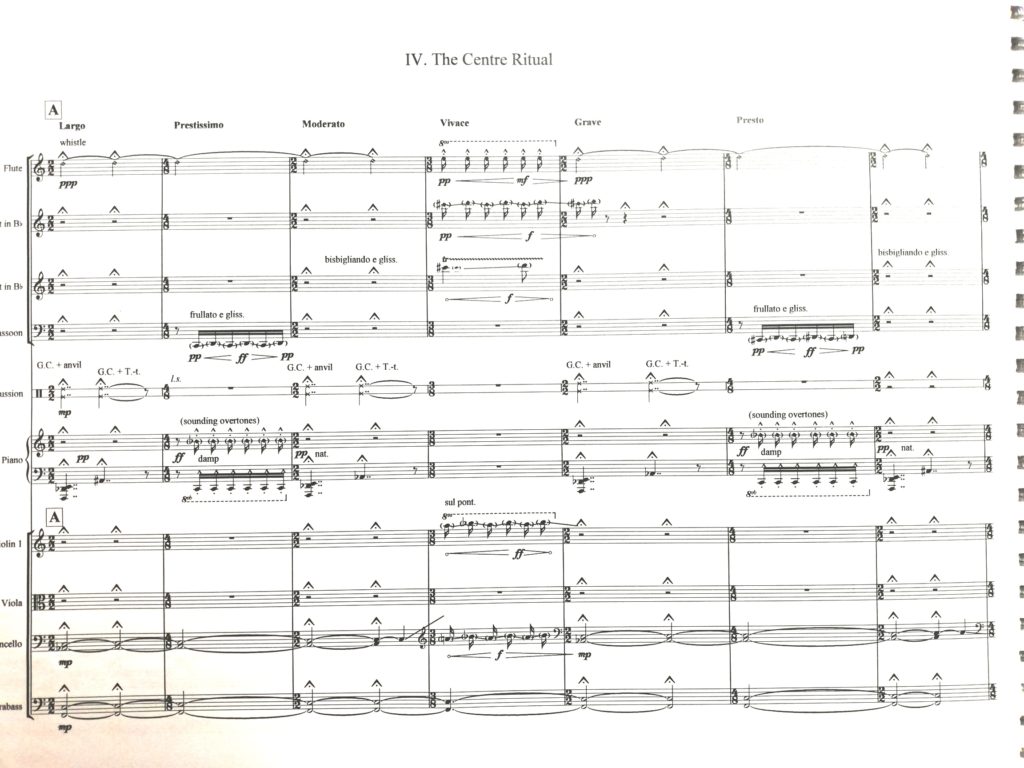Mašín Gun (Seven Rituals for purging the Czech Lands from the Spirit of Communism)
Pemiered on Dec. 12 2012 during the Musica Viva festival, Munich, Muffathalle. Performed by Ensemble Modern, conducted by Peter Eötvös.
Commissioned by Ensemble Modern and Goethe Institute within the project Where from? Where to? – Myths. Nation. Identities.
Broadcasted live on Český Rozhlas 3 Vltava a Bayerischer Rundfunk Radio.
Ctirad Mašín and Josef Mašín jun. are national heroes, or rather enemies of the people in the Czech Republic. To the present day there are debates whether the assaults and murderous escape of both brothers should be celebrated as heroic deeds or condemned as crimes. However, the fact is that both brothers remain up to this day in the minds of the Czech population. As sons of an officer who already fought in the World War II in the resistance against the German occupation and who was executed in the end they had taken action against the communist regime in Czechoslovakia since the 1940s. In the Stalinist years many of their friends were sentenced to death or they simply disappeared without any trace. In the autumn of 1953 the Mašín brothers fled in a “Wild West”-like pursuit and they shot free their way to West Berlin. For the police in the CSSR and GDR the action turned into an embarrassing defeat. However, four policemen died during this escape and two more suffered serious injuries – a circumstance which affects the public opinion against the two resistance fighters until today.

The Czech composer František Chaloupka was born in 1981. For him, the Mašín brothers represent a historic episode which still remains rooted in the consciousness of the population. They are a modern myth, which was interestingly used both by the communists and by the anti-communists for their purposes. With his piece MAŠÍN GUN, František Chaloupka recalls this episode. The seven rituals that should purge the country from the communist spirit are seven sentences, which present on one hand a clear musical form, and which elaborate various different characters at the same time. The form of the work is cyclical, with an introduction and an epilogue, as well as three first movements that are interrupted by intermezzos. The form is symmetrical, the tempos decrease inwards and they increase outwards again.
The sketches to MAŠÍN GUN show how Chaloupka prefigured the material for his work. On the one hand, particularly many glissandos trace back to “irregular pendular movements”, which are noted by the composer as a zigzag curve. Those pendular movements found their way into the score of MAŠÍN GUN, especially in the glissandos, which characterize the entire string part of the work and which are exposed by Chaloupka immediately at the beginning of the piece. Besides, the sketches contain many clusters of points that spread and condense to clear forms which flee upwards or downwards.
The two intermezzos fall out of the cycle, if only because of their orchestration. They are dormant, almost magic moments, for which Chaloupka creates a very dark sound – with clarinet, contrabassoon, bass drum, violoncello and contrabass. Moreover, the middle movement contrasts even more. Here, the tempos change from bar to bar. The movement begins with the succession of tempos largo, prestissimo, moderato, vivace – and these are, as already mentioned, only the first four bars. The tomtom and the anvil are only used in the middle movement, which accentuates even more the stress on significance and the ceremonial character.
There is also the emphasis on the drummer, who in fact also plays the vibraphone, cymbals, tomtom and anvil, however, whose main instrument is the bass drum and who is supposed to step forward as the “soloist” here, because the score demands it. With the rubbing on the skin of the bass drum, Chaloupka emphasizes the ritual character of the music, as he suggests an overall “theatrical and ritual behaviour” to the drummer.
The remarkable thing on MAŠÍN GUN is the fact that Chaloupka seems to express no opinion on the events related to the brothers. He rather concentrates on the ritualization and the evocation of the myth itself. The fact that the title MAŠÍN GUN is similar in its pronunciation to the English expression machine gun is mentioned for the sake of completeness.
Björn Gottstein works as a freelance journalist about contemporary and electronic music. He lives in Berlin.

